What is reflective practice?
Posted on: July 7, 2022by Ruth Brooks

We live in a fast-paced world, with the momentum of both our personal and professional lives continuing to gain speed. But, if we are to keep on working, growing and flourishing, it is imperative that we slow down and take stock of our progress. Reflective practice is a mode of learning that offers just that: the fostering of introspection in order to process our experiences and look back and learn from our actions.
A combination of critical, constructive and creative thinking, reflective practice enables space for intensive personal development. Through this method of self-analysis, we can improve the efficiency of our immediate reactions, broaden our capacity for compassion, self-awareness and resilience, and ultimately, strive toward establishing the long-term emotional relationship we have with our work.
Whether it takes the form of a work appraisal, team debriefing or moment of self-inquiry, reflective practice is a tool that can be applied to almost all professions in order to improve interpersonal working relationships and enhance the end services delivered.
Reflective practice in the workplace
Professionals from various fields can benefit from reflective practice. Reflective practitioners understand that their efforts, conduct and skills can constantly be improved and use this tool of learning to gain insight and acknowledge their achievements and mistakes. This acquired knowledge is then utilised to maximise the potential impact of their abilities.
A great application of reflective practice can be seen within public services, such as healthcare, emergency services, education and social work. Where interpersonal care and communication skills are involved – between doctor and patient, paramedic and injured party, or teacher and child, for example – a commitment to this exercise can expand capacity for handling stressful or uncertain exchanges with confidence, conviction and emotional intelligence.
Outside of the public sector, reflective practice can be applied widely to help make meaning and find purpose at work: inspiring business leaders to strengthen their capacity for team building, encouraging coaches to understand the needs of their diverse sports teams, and enabling students to focus and take accountability in managing their taskload, for example.
Ultimately, a systemic application of reflective practice could contribute to creating more engaged and efficient teams within balanced, harmonious and inclusive working and learning environments.
What are examples of reflective practice?
According to Donald Schon’s reflective model, reflective practice typically takes the form of either reflection-in-action or reflection-on-action.
Reflection-in-action takes place during an active situation, as it happens in real-time. This approach involves a practised combination of acute observation, active listening and intuitive problem-solving, as professionals are required to ‘think on their feet’.
Examples of reflection-in-action occur during everyday interactions, ranging to more significant stress events. This may present as clinician-to-patient diagnosis and care, or teacher-child communication. Reflective practitioners have an evolved understanding of how to plan ahead and critically respond to the situation with the most appropriate and effective word choices, behaviours and course of action. In this way, they exhibit maximum self-awareness and refined emotional intelligence.
Reflection-on-action, on the other hand, involves processing an event after it has taken place. This could take the form of self-reflection, such as journaling your experiences, or as a group reflection, such as a team meeting or collaborative cohort. It involves identifying learning gained, unpacking unexpected outcomes and making adjustments in preparation for future scenarios. Examples extend from the recognisable athletic ‘locker-room’ talk, to routine appraisals, to interdisciplinary practitioner working groups.
As a shared activity, reflective practice can help us broaden our perspectives, learn from shared experiences and benefit from knowledge exchange.
Gibbs’ reflective cycle
Reflective practice is cyclical in nature. This six-stage framework developed by Professor Graham Gibbs presents a model for reflection that lends itself to learning through repeated experiences.
The cycle is shown as:
- Description: what happened during the event or situation, such as where you were, who was there, what took place and what was said
- Feelings: thoughts, feelings, reactions and triggers that arose during the experience
- Evaluation: what worked effectively and what could be improved
- Analysis: make sense of the situation, apply to context, and source relevant literature or research for guidance
- Conclusion: what have you learned
- Action plan: apply knowledge and create a step-by-step plan to improve practice or service, overcome any barriers and inform future learning experiences
Gibbs’ model is an effective template for reflective practice, defining a clear pathway for critical reflection while making space for the emotional impact of the learning experience.
What is the importance of reflective practice?
It is vital to learn from experience. Some measurable benefits of the reflective practice framework include:
- Improved self-awareness and interpersonal communication skills
- Increased emotional intelligence
- Developed creative thinking and problem-solving skills
- Enhanced engagement and focus with your work
- Makes meaning of a situation and finds purpose in our goals
- Advanced resilience and ability to rise to a challenge
- Helps us develop effective strategies to improve the services offered
As we strive to become our best professional selves, reflective practice is a fantastic method for facilitating practical growth and emotional expansion.
Become your best professional self with an MA Education
Reflective learning is an essential part of any role, particularly applicable to those working within the public sector. With course modules spanning mentoring and coaching, learning technologies, critical pedagogy and anti-oppressive practice, the online MA Education degree from North Wales Management School has been created specifically for educational professionals in a wide range of work contexts, including schools, colleges, universities and public sector organisations.
Consider the latest theoretical underpinning related to your work, challenge and extend critical thinking, and reinforce your practical work experience with the tools and techniques that will help you to achieve career success as an educational practitioner.





